Published Dec 9, 2024
The Wisdom of Worf
In celebration of Michael Dorn's birthday, we're looking at the evolution of the honorable Klingon warrior.
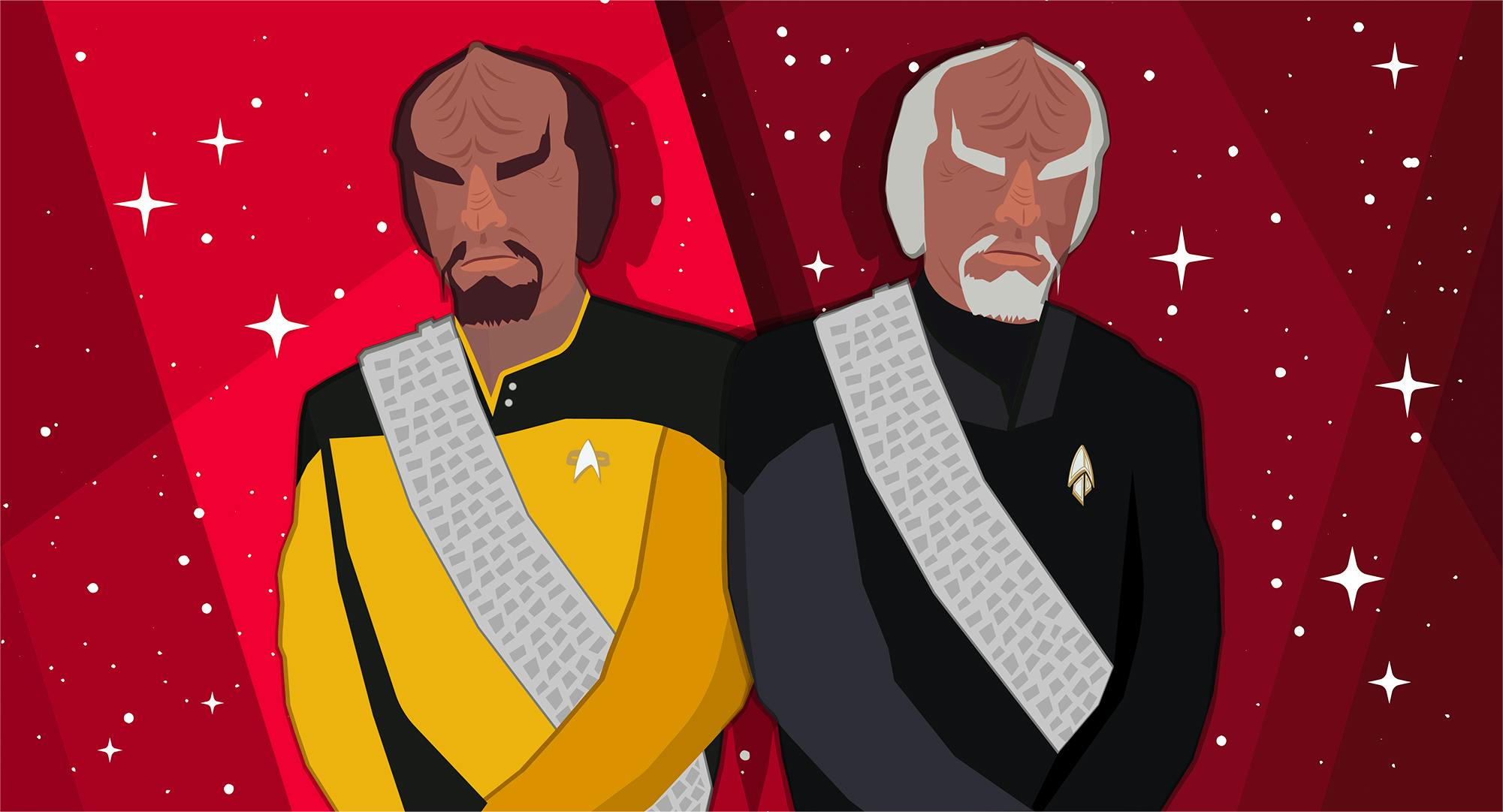
StarTrek.com
With a dramatic entrance in 's third season which involved beheading a Ferengi gangster, Worf demonstrated that he was still as fearsome a combatant as he had been in and . However, as Raffi Musiker would soon learn, the Klingon had also experienced a significant level of philosophical and emotional growth since we last saw him in action against Shinzon's Reman forces in .
Worf's evolved outlook added even more depth to the fan-favorite character, yet in spite of these changes, Worf proved that his Picard-era personal improvements were deeply rooted in the same core values that the beloved warrior cherished in his days aboard the U.S.S. Enterprise-D and Deep Space 9.
A Foundation of Family
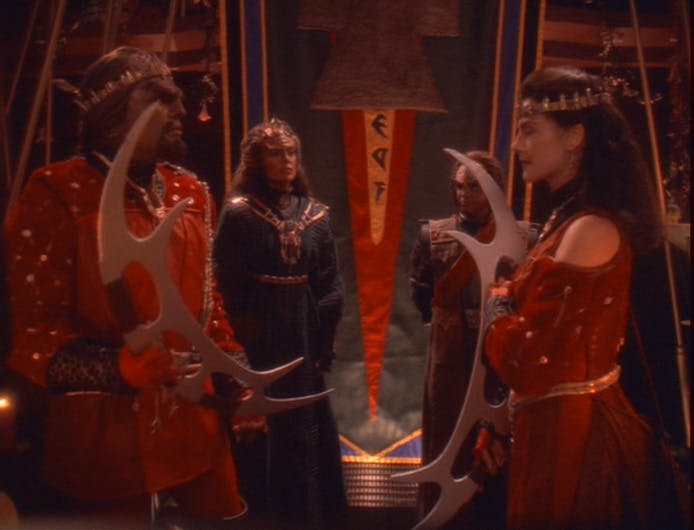
"You Are Cordially Invited..."
StarTrek.com
Throughout his younger years, Worf cherished the notion of family, both in terms of his Klingon lineage and his adoptive parents. Buoyed by the news that his brother, Kurn, was alive in "," Worf felt a deep connection toward his sibling that survived his own discommendation, the Klingon Civil War, and hostilities between the Federation and Klingon Empire. The same held true for his adoptive brother, Nikolai Rozhenko, who Worf gained a new appreciation for as Nikolai started a family of his own in "." Worf venerated his birth father, Mogh, going to great lengths to clear his name of wrongdoing in "," and his respect for Sergey and Helena Rozhenko was clear when they visited him in "" and "." While Worf's relationship with his son Alexander was tumultuous at times, he nevertheless welcomed him into the House of Martok in "" and involved him in his wedding to Jadzia Dax in "."
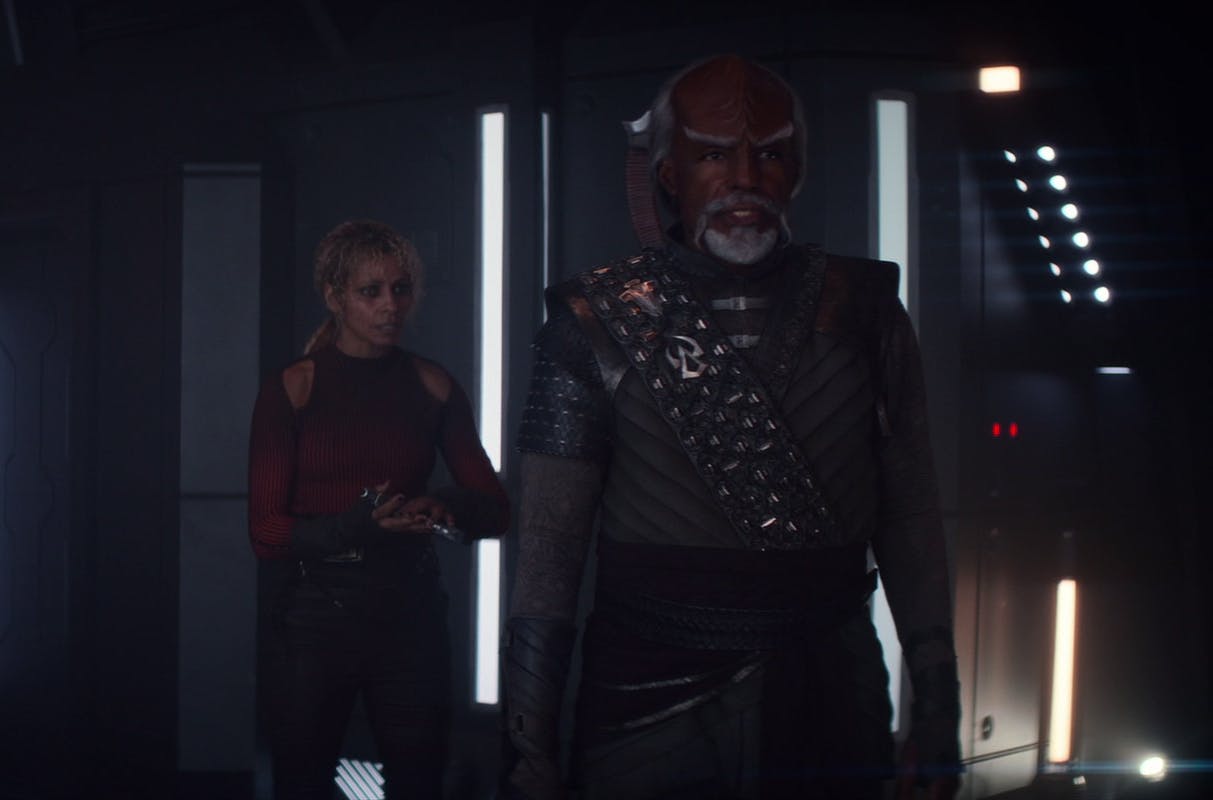
"Seventeen Seconds"
StarTrek.com
When Worf officially greeted Raffi in Picard's "," he declared, "I am Worf, Son of Mogh, House of Martok, Son of Sergey, House of Rozhenko, Bane to the Duras family, Slayer of Gowron." This proclamation, recounting his ties to Mogh, Martok, and the Rozhenkos, underscored the fact that Worf carried his familial pride into the 25th Century.
Of course, he then politely noted that he had made chamomile tea and inquired if Raffi took sugar in hers, but the niceties did not preclude his affinity for his history. Perhaps identifying with Raffi's estrangement from her kin, Worf went on to covertly arrange a presentation that showed her son every classified valor commendation she had received. The act enabled Raffi to reconnect with her son and meet her granddaughter, with Worf referring to himself as "an honorable maverick" for his role in bringing her family together in "."
Allegiance to Honor
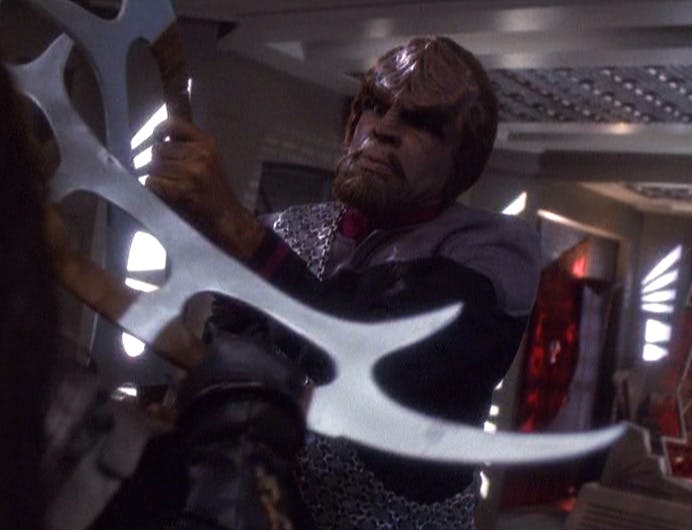
"Tacking into the Wind"
StarTrek.com
Worf's devotion to honor during his tenure under the commands of Captains Picard and Sisko has been well-chronicled, but one particular moment in "" highlighted the extreme lengths he would go to in order to adhere to his definition of honor.
Believing Chancellor Gowron was wasting Klingon lives in a bid to undermine General Martok's image during the Dominion War, Worf openly objected to the Klingon leader's strategies and accused him of being without honor. The challenge led to a duel which resulted in Gowron's death and the eventual ascent of Martok to the chancellorship, a monumental shift for the Empire that sprung from Worf's strict interpretation of what true Klingon honor resembled.
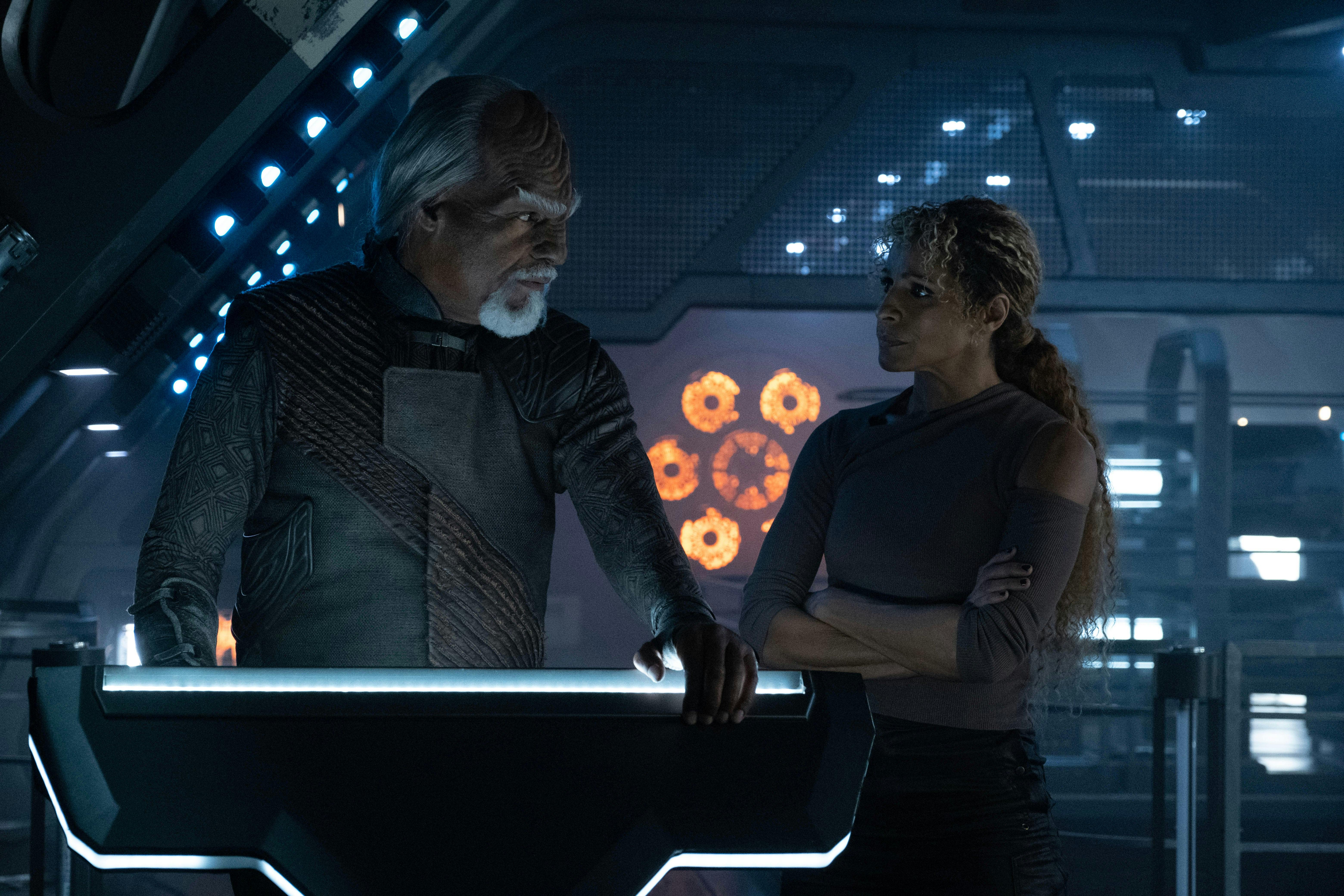
"Imposters"
StarTrek.com
In addition to calling himself an honorable maverick, Worf maintained his affinity for noble-mindedness on several occasions across his appearances in Picard's third season. Forced to face Raffi in hand-to-hand combat by the Ferengi gangster's Vulcan friend in "," Worf expressed his newfound respect for Raffi by taking a moment to tell her that working alongside her had been an honor. Worf even offered up a rendition of his well-known phrase — "today is a good day to die" — when it seemed as if he and Captain Riker may perish in "." As he and Riker navigated the massive Borg Cube ensconced in Jupiter's gaseous atmosphere, Worf displayed his signature brand of bravery by commenting, "It is a fine day, indeed, to die with honor."
Dedication to Duty
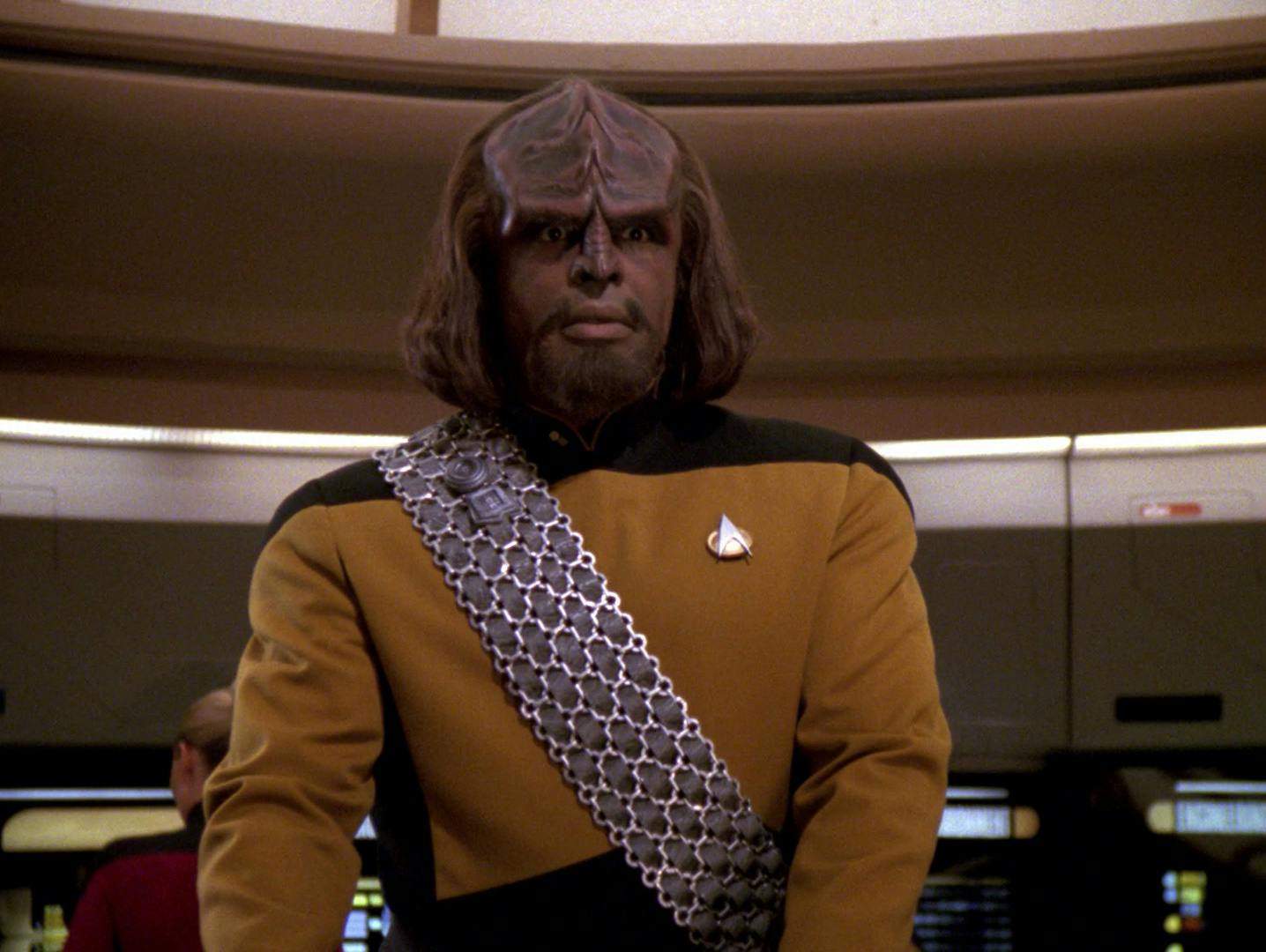
"New Ground"
StarTrek.com
Duty and honor have always gone hand-in-hand for Worf, as shown by an exemplary Starfleet career that saw him rise from the rank of a junior officer to serve as the U.S.S. Enterprise-D's Chief of Security and Deep Space 9's Strategic Operations Officer.
He balanced his duty to the Federation with his obligations to the Klingon people, temporarily joining Kurn in battles against the Duras Sisters in "." A glaring exception came when he elected to save Jadzia Dax rather than complete a mission in "," yet even in that case, Worf essentially placed his duty to his loved one above all else. Though Captain Sisko warned that such a blemish could impact future promotions, Worf's extraordinary record allowed him to defy that expectation and earn the rank of captain by 2401.
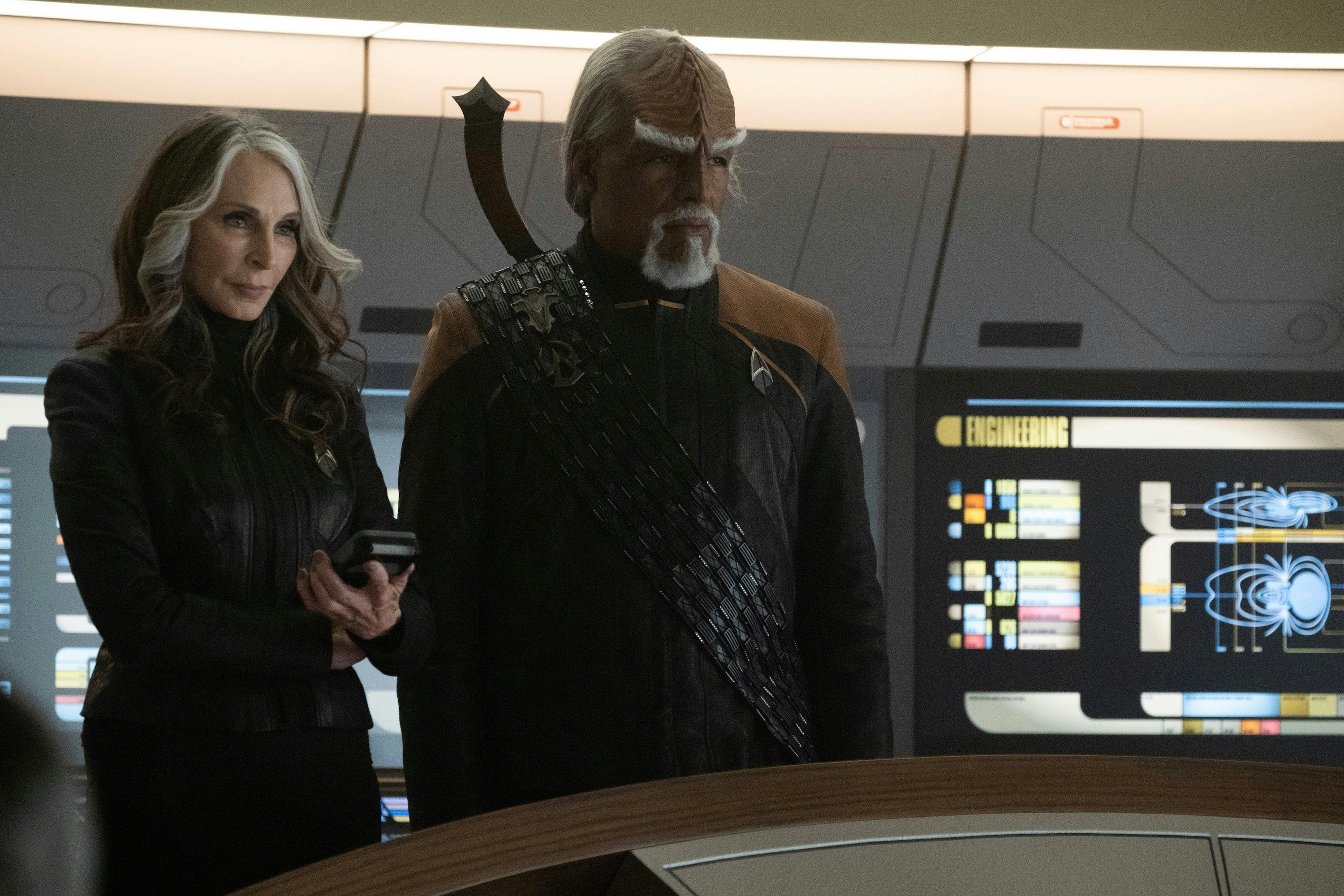
"Võx"
StarTrek.com
Although he described himself as a subcontractor whose concerns aligned with those of Starfleet to Raffi in Picard's "," Worf still reported his findings to Commander Ro Laren of Starfleet Intelligence. Once gathered with Admiral Picard aboard the U.S.S. Titan-A, the Klingon was quick to trade the casual attire he wore on M'Talas Prime for the familiar trappings of a Starfleet-issue uniform jacket complete with captain's rank pips.
And, when the galaxy needed him the most in "Võx," Worf did not hesitate to heed the call to service, choosing to stand with his friends and once again take his post at the Enterprise-D's tactical station. Whether in or out of uniform, Worf considered it his duty to put the entirety of his being on the line to benefit the greater good.
A Habit of Humor
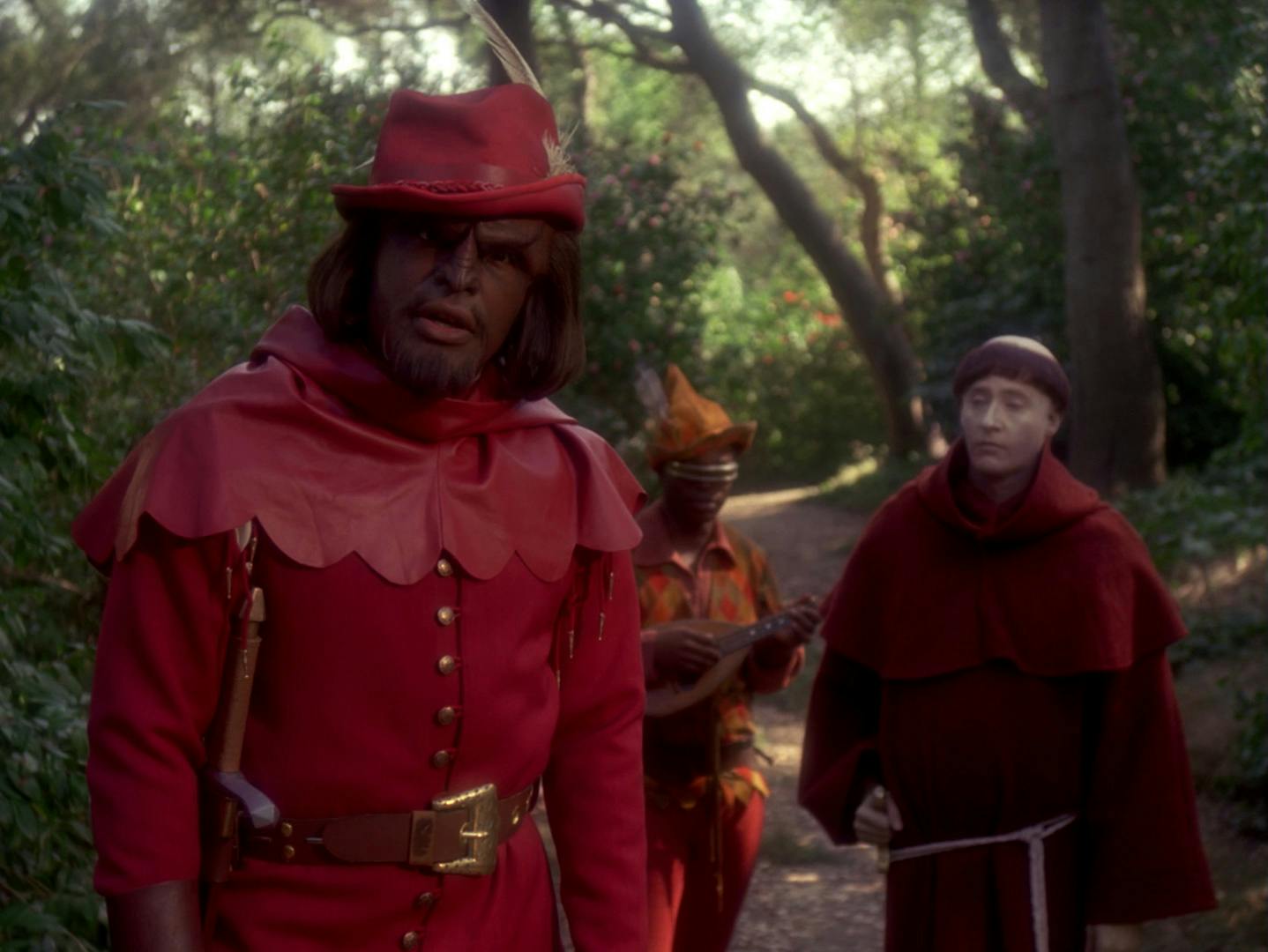
"Qpid"
StarTrek.com
Despite his generally serious nature, Worf had a dry humor that often emerged unintentionally. His protestation that he was "not a merry man" upon realizing he had been transported to an illusion of Sherwood Forest and outfitted with the wardrobe of Robin Hood's Merry Men in "" ranks chief among such occasions.
Then again, there were also instances where the Klingon warrior purposely harnessed his stoic reputation to poke fun at his friends. After several crew members had been miniaturized in "," Worf claimed to have written a poem about the situation, asserting that the first line read, "This is the story of a little ship that took a little trip." Jadzia Dax was unsure of how to politely respond to the very basic prose, but she soon realized that her husband was deliberately playing a joke on her.
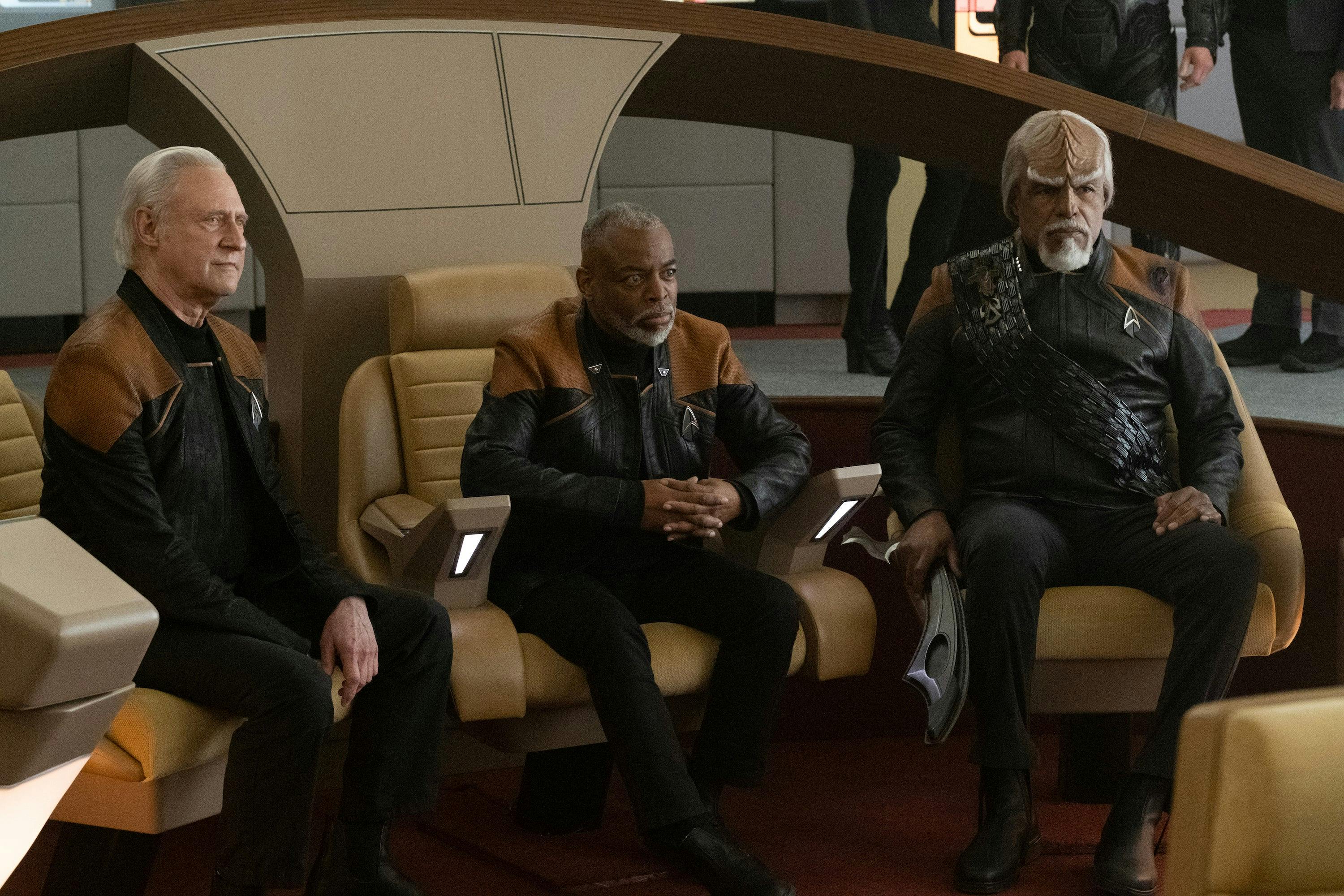
"The Last Generation"
StarTrek.com
Worf's habit of delivering inadvertently humorous quips persisted in Picard. From calling Chateau Picard "sour mead" and noting "breakups on my homeworld seldom end without bloodshed" in "" to referring to an away team as a "threesome" and deadpanning that he did not draw his phaser because "swords are fun" in "," Worf had a knack for generating unintended laughs.
His advanced age even factored into the fun, as the Klingon amused Geordi La Forge and Data by falling asleep upon his return to the Enterprise-D in the wake of their arduous mission. Of course, Worf's willful wit also endured, as he countered Raffi's jab that Klingons wore casual clothing to Tuesday beheadings by intentionally joking, "Beheadings are on Wednesdays" in "."
Klingon Culture
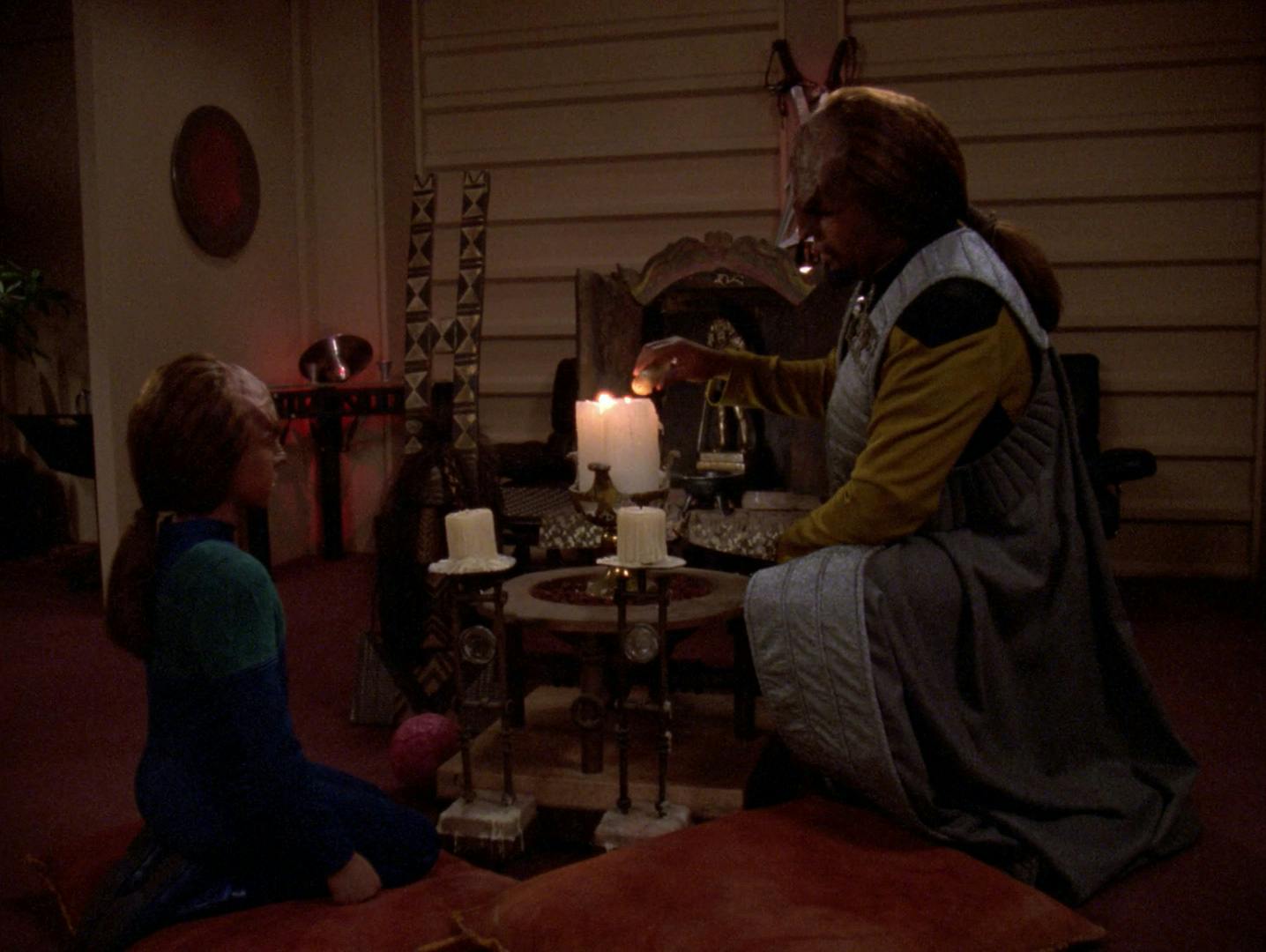
"Firstborn"
StarTrek.com
Observing and preserving his image as a warrior were prominent goals for Worf in his youth. Performing the raucous death ritual in "" through the r'uustai in "" preparing Alexander for his Rite of Ascension in "," admiring Kahless' bat'leth in ",” and agreeing to kill Kurn in a Mauk-to'Vor ceremony in "" each represented aspects of Klingon cultural touchstones in which Worf invested himself.
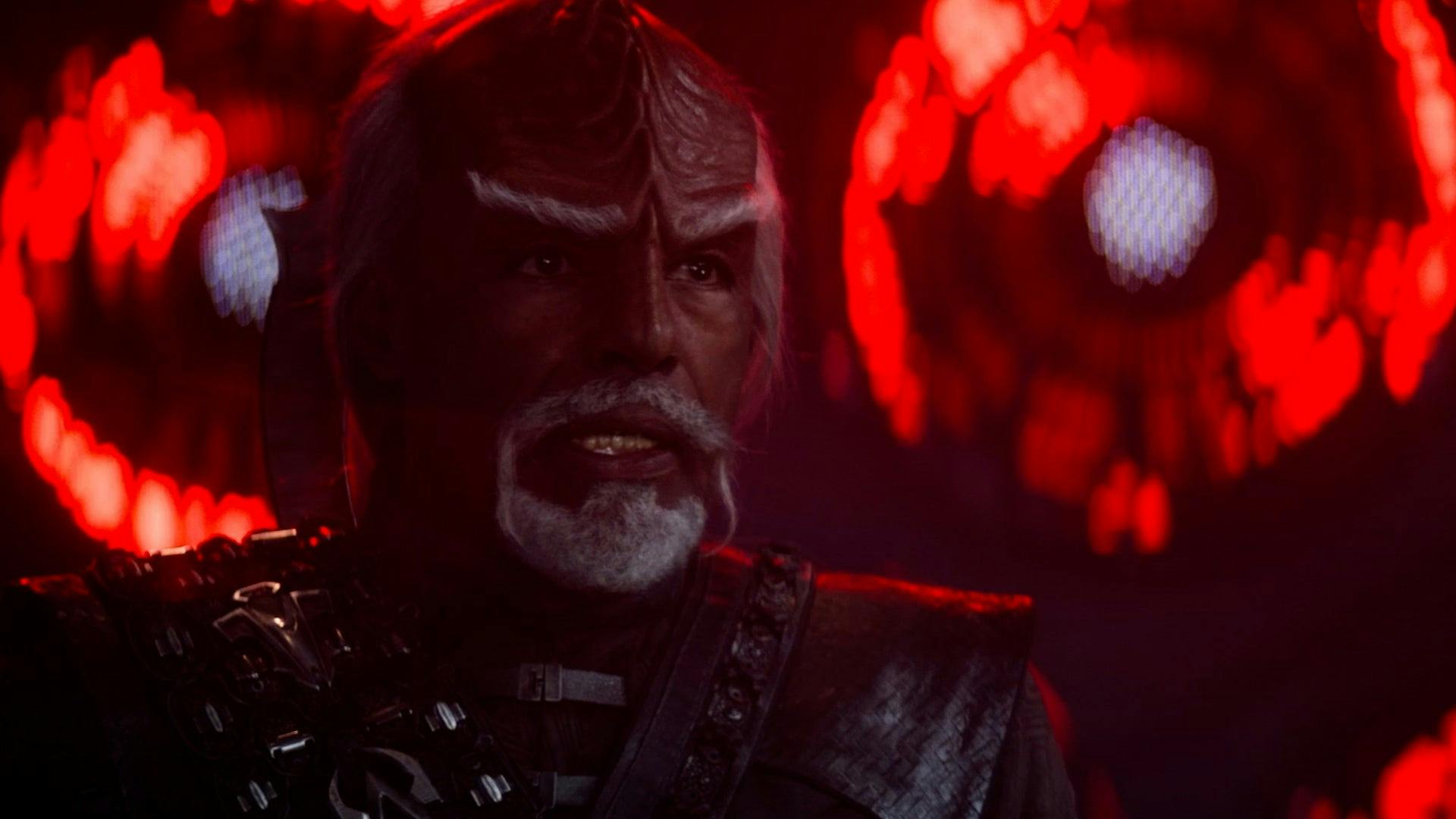
"Seventeen Seconds"
StarTrek.com
Picard furthered Worf's attachment to his heritage, as Worf divulged that his studies had continued, permitting him to master the Kahless technique of regulating his heart in "" and citing two turns of phrase a Klingon never admits to knowing — defeat and farewell — in "."
Plus, he couldn't help but boast about the cloaking device borrowed by the Titan-A being "superior Klingon technology" in "." And, as far as being a warrior goes, Worf's beheading of Sneed and his vigorous clashes with Vadic's Changelings and the Borg Queen's drones verified that, his self-improvement notwithstanding, Worf never wavered in his commitment to keeping his combat skills sharpened.
A Path to Peace
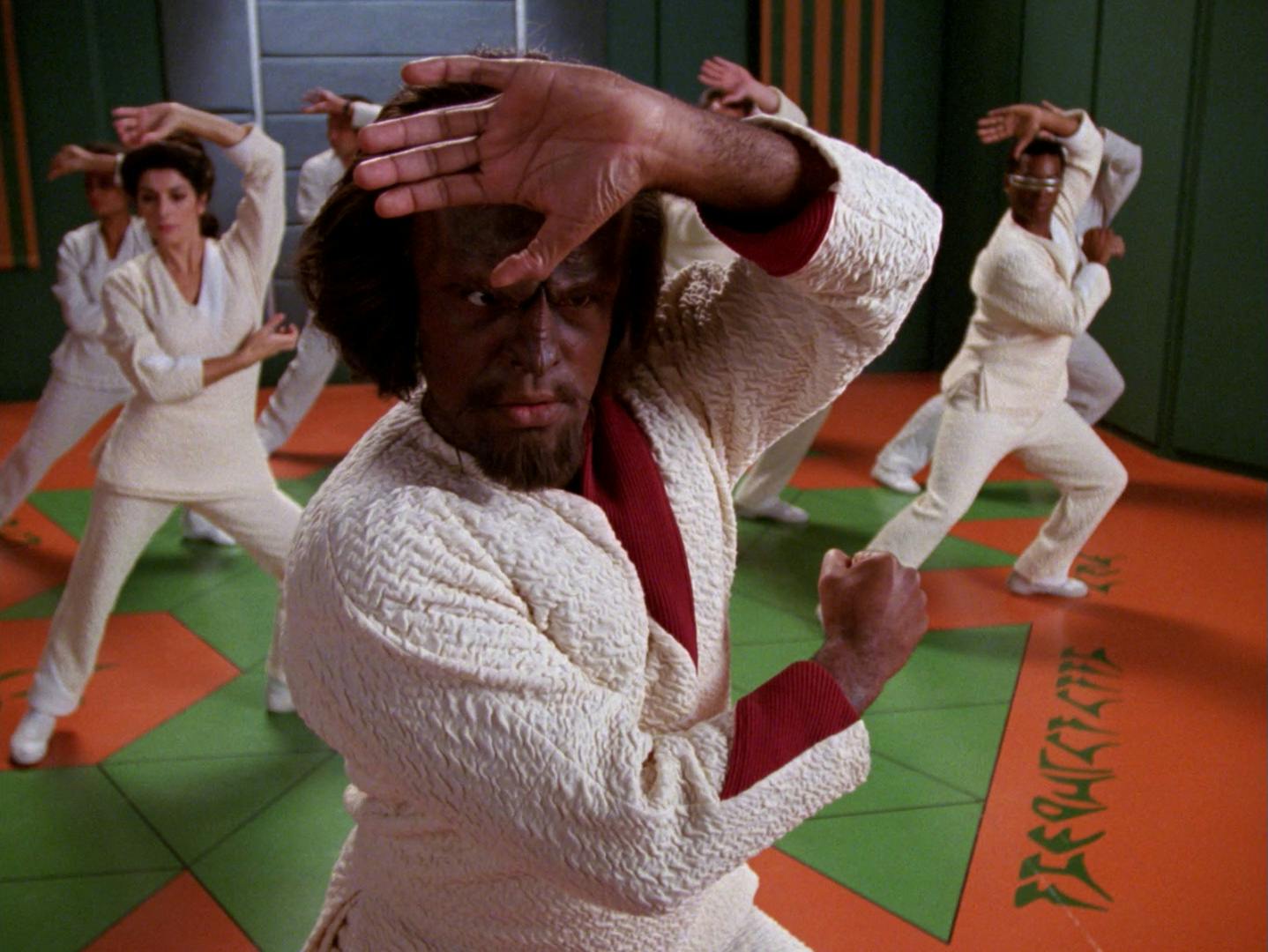
"Clues"
StarTrek.com
Prizing peace might seem counterintuitive for a battle-hardened Klingon warrior, yet Worf considered the mok'bara, a Klingon martial art and exercise technique that he taught to others aboard the Enterprise-D, as a form designed to clear the mind and center the body in "" Upon learning from a future version of Alexander that he would grow up to serve as a diplomat and peacemaker, Worf assuaged his son's guilt over not becoming a warrior by confiding that the cause of peace was a just cause in "."
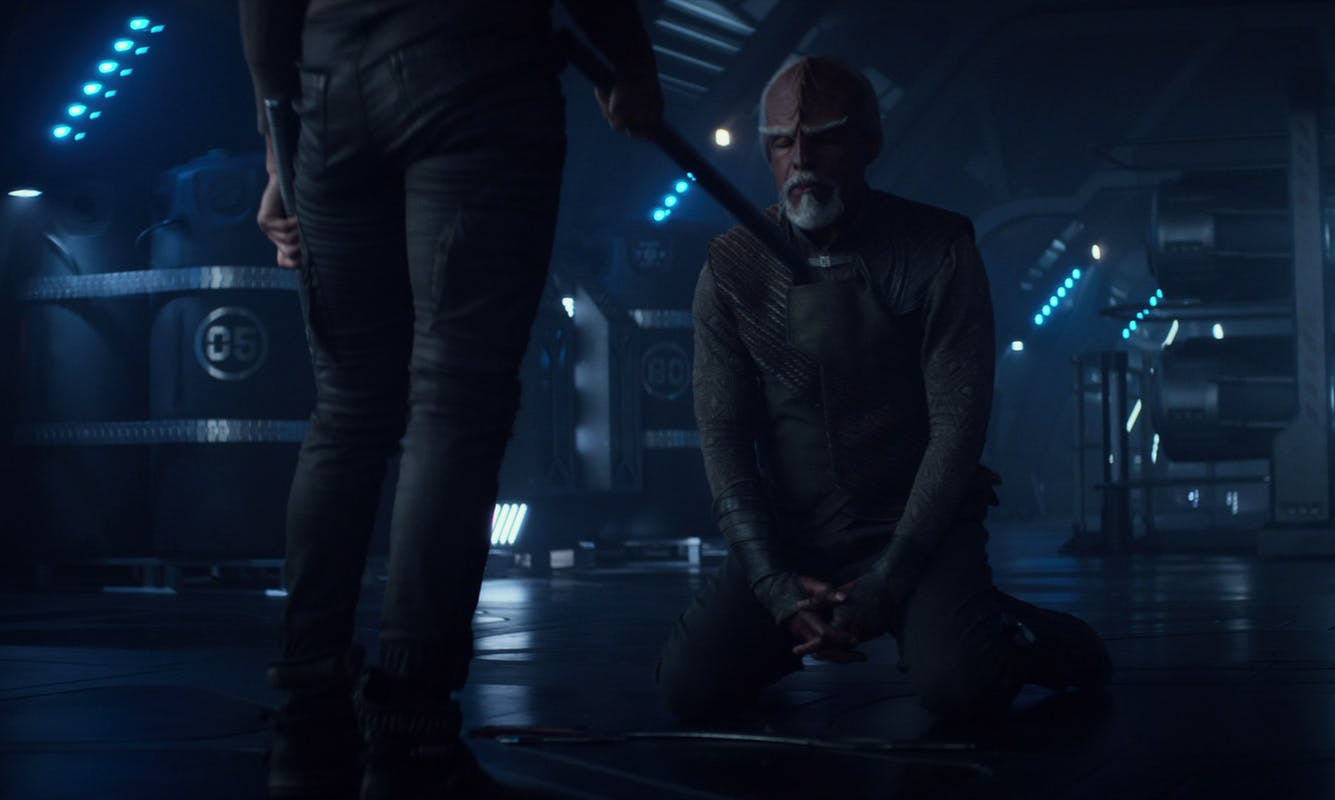
"Imposters"
StarTrek.com
So, when Picard-era Worf meditated after sparring with Raffi in "Imposters" or informed Riker that he now preferred pacifism to actual combat in "The Bounty," he was merely expanding upon the internal doctrine he had started exploring decades before. After all, in Worf's own words, "The most advantageous battle stance is being one within oneself."
A Matter of Perspective
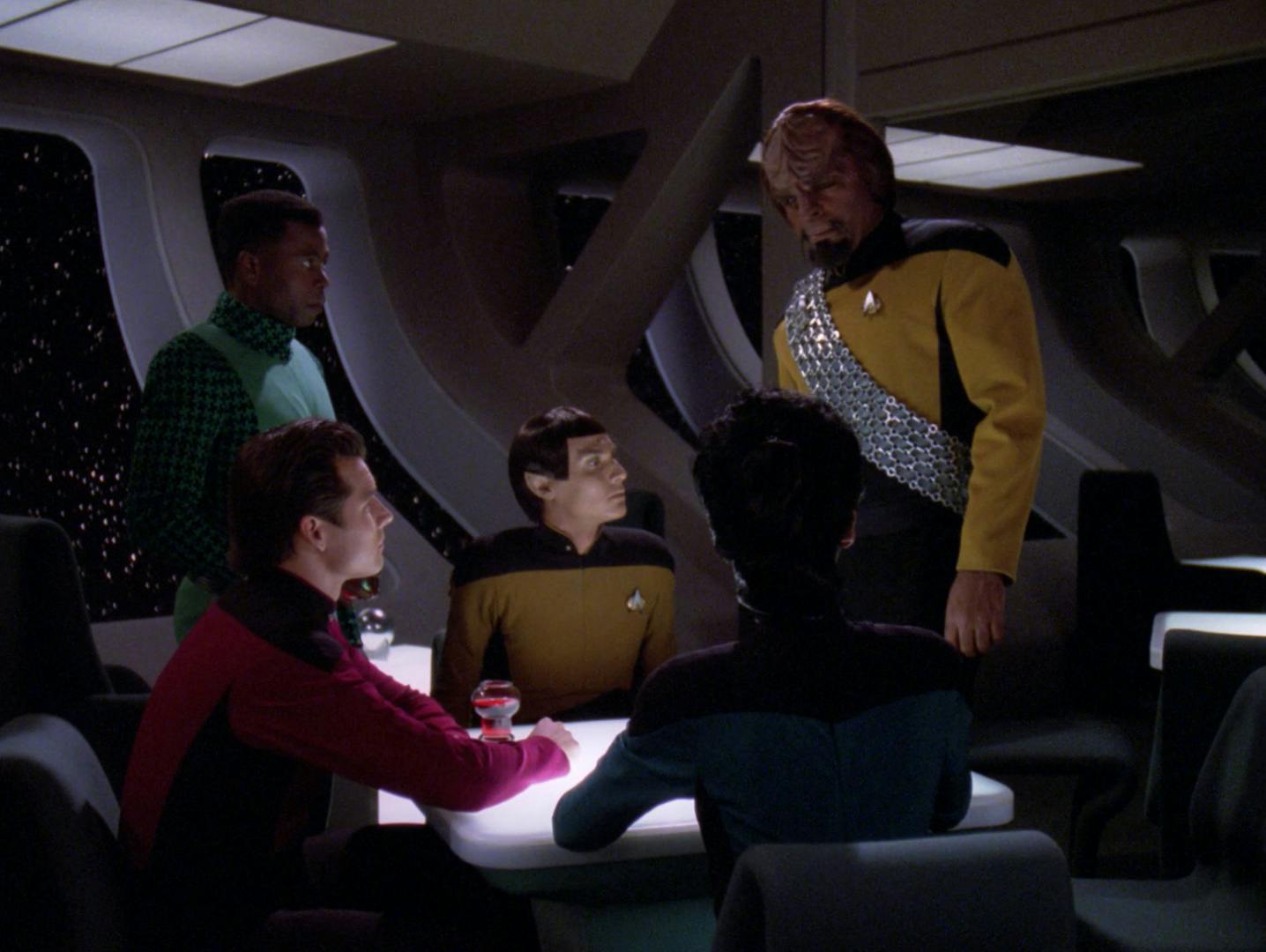
"Lower Decks"
StarTrek.com
As much as life changed for Worf between The Next Generation and Picard, his old familiar traits continued to emerge in the 25th Century, even in the common gestures of drinking prune juice as he celebrated the final victory over the Borg or angrily banging the table to vent his frustrations as he played cards in "The Last Generation."
For Worf, growth wasn't so much about altering his essence, but rather striking a better balance. In "Seventeen Seconds," Worf explained, "I have learned of late that one must access calm as much as fire. So I have been, as humans say, working on myself."
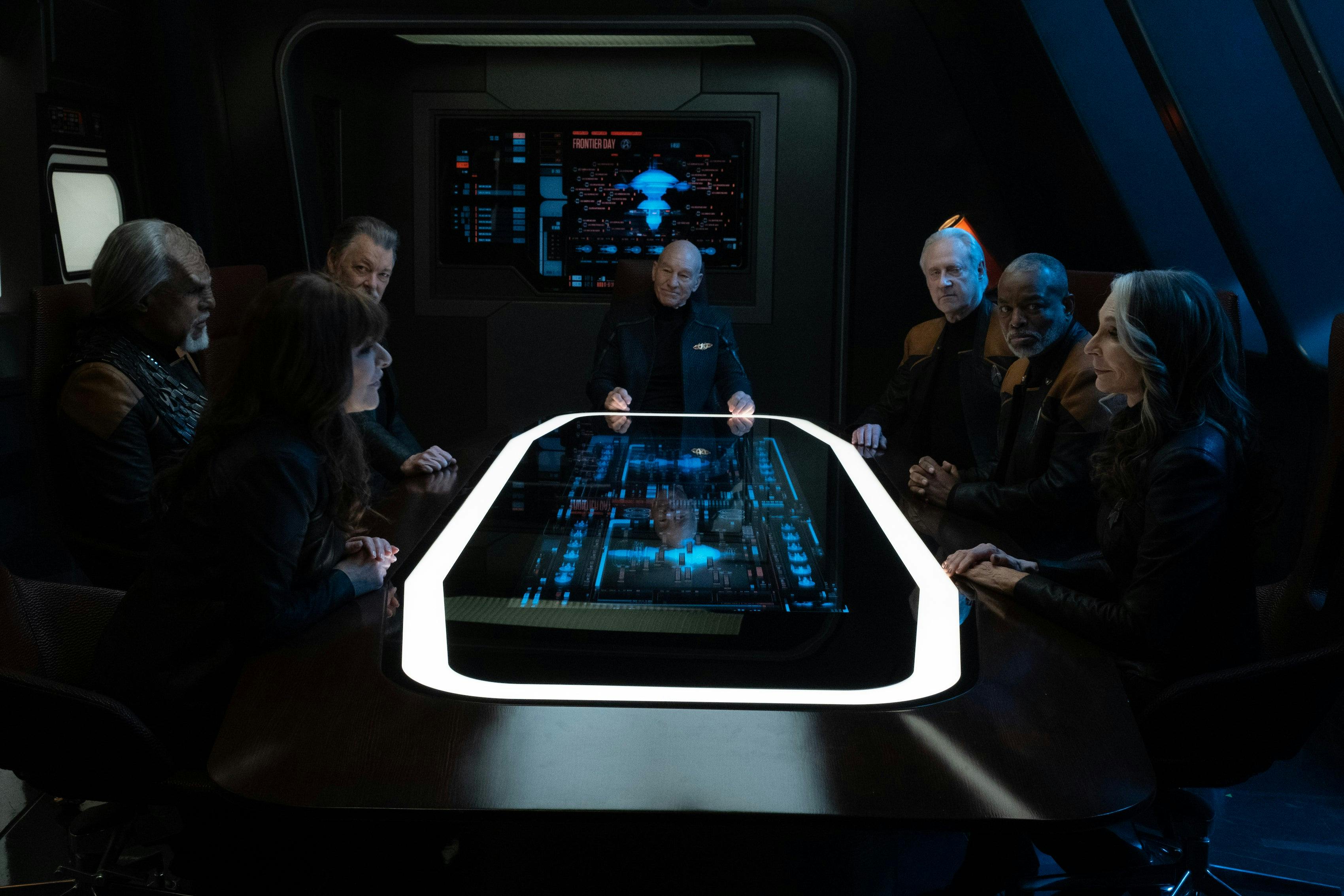
"Surrender"
StarTrek.com
The same episode portrayed Worf’s understanding of his own transformation, as he reflected on his previous disposition for irrational and violent behavior by relaying that "things change with perspective." In fact, Worf perfectly summarized his personal growth and improved balance in "," telling his friends, "I have slaughtered countless enemies over the years and considered sending their heads to all of you. But I was advised that that was… passive-aggressive."
Worf’s reverence for family, honor, duty, humor, and culture remained entrenched in his heart in Picard; he simply invested more thought into his reactions and tried to factor in the wisdom that he had obtained over the years.





